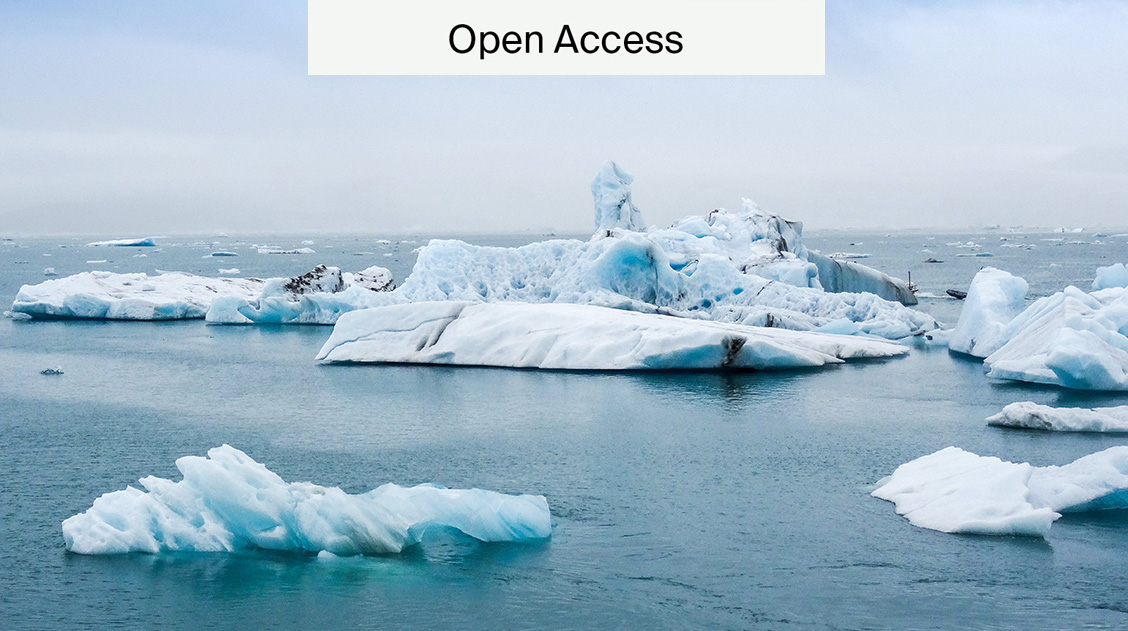
We Need Open Access to Tackle Climate Change in 2024
The world will face an unprecedented set of challenges in 2024. With 2023 set to be the hottest year on record, climate change is arguably the most pressing. This year represents a critical moment for whether we can make the changes and decisions necessary to mitigate the shocks of global heating. Science plays a big role in this, and we need Open Access to ensure it can be communicated as widely as possible. Tackling climate change in 2024 is vitally important.
A grim picture of global heating
The IPCC Climate Change 2023 Synthesis report highlights the magnitude of change the planet is experiencing in its atmosphere, ocean, cryosphere, and biosphere. This is manifesting in increasing weather events, losses in nature, and the destruction of crucial infrastructure. All this will radically impact and transform the lives of entire populations.
Moreover, this report highlights that the largest impacts are observed in low-to-middle-income countries, of which 85% of the world’s population live.
Due to these stark warning signs, the Paris Agreement set the aim of preventing the global average temperature from rising 1.5°C above pre-industrial levels in 2015. However, a review in Atmospheres stresses how our current emissions trajectory puts us on track for a temperature rise of between 2.1°C and 3.9°C by the end of the century.
If you want to learn more about the specific impacts of climate change and what researchers are already doing about it, we’ve written on coral reefs in the warming ocean and the rising amount of plastic pollution.
Why we need climate research
As mentioned, all these changes ultimately affect humans. The climate is central to food production, transport, infrastructure, clothing, health, and more. Therefore, we need to understand it as best as we can to prepare.
However, the climate is a dynamic system, meaning it is hard to model and can surprise us, given our limited understanding of it. Large amounts of research from various disciplines are necessary to create complex models that can suitably capture the climate and what risks are ahead.
For example, climate tipping points are when something gradually shifting reaches a point in which it suddenly and drastically alters, potentially causing rapid and even irreversible changes to the planet, sometimes in ways we cannot predict. The polar ice sheet collapsing is a worrying example of this.
Preparing for climate tipping points and doing what we can to mitigate them represent just reason for why we need to tackle climate change in 2024.
Raising awareness
The Atmospheres review highlights how, in the USA, public understanding of global warming is improving but remains low and perceived personal risk is also very low.
The UN stress the importance of educational and public awareness campaigns on climate change. They cite its necessity for changing attitudes and behaviours and empowering younger generations to take action.
An article in Energies explores why this is the case. The authors describe how, for many, climate change is not directly perceived, so it is hard to understand. The diverse variables and factors that make up the climate mean it’s hard to visualise or imagine, further stressing the need for models, as they can help improve public awareness and understanding.
In short, models are necessary for both scientists and the public to tackle climate change in 2024. Such models require intense interdisciplinary collaboration and communication. They would help increase preparedness, public understanding, and open potential avenues for relieving effects.
Academia needs change—it needs Open Access
Climate change requires an unprecedented effort from scientists, as it transcends all institutional and national boundaries. Despite this, academia remains restricted by subscription fees, silos, access inequalities, and more.
These are the same issues addressed in the landmark Budapest Open Access Initiative, which called for “removing the barriers to open access and building a future in which research and education in every part of the world are that much more free to flourish”.
Open Access would ensure that research is free to access, but how would it increase collaboration?
Interdisciplinary research
Interdisciplinary research analyses and harmonises links between disciplines into a coordinated whole. It’s ideal for tackling issues like climate change that require a concerted approach.
Open Access enables interdisciplinary researchers by ensuring there are no barriers to accessing the literature. This enables them to create more sophisticated approaches by pooling their skills and knowledge to generate fresh insights and creative solutions to multifaceted issues.
Oceanography is a key example of a field that transcends disciplinary boundaries. Experts across biology, chemistry, physics, and their various subdisciplines come together to focus on a common issue.
Visibility and speed
Open Access also boosts the visibility of research. This is observed in the size of its audience, the extent of its reach, and the engagement it generates.
Perhaps most important is the ‘Open Access citation advantage’. This refers to how Open Access research tends to receive more citations compared to closed access. Citations are important because they indicate not just visibility but also engagement. A cited work is being referenced for its value and usefulness in producing another work.
Moreover, Open Access journals publish much faster than traditional journals. This is highly important for issues like climate change that necessitate immediate action. Research is published quickly and openly, reducing the chances of duplicate research. This is further supported by preprints, which enable researchers to deposit early versions of their work in online repositories.
Communication
Of course, Open Access is valuable because it is freely accessible. As mentioned before, climate change often impacts lower income countries more than others. Many of which have limited funds to access expensive research, let alone implement the findings.
Therefore, perhaps the greatest beneficiaries of Open Access climate research will be those in the most vulnerable regions of the world.
Therefore, tackling climate change in 2024 requires a shift in academia. But what does an Open Access research movement look like during a crisis?
How science opened up during COVID-19
In 2020, science drastically altered. Researchers came together in a remarkable and unprecedented global effort to mobilise and mitigate the pandemic.
Within a year, some claim, 10 years’ work was done. This included a range of work across disciplines and nations:
- Researchers isolated the virus and made rapid tests;
- Monitored its evolution and how it spread;
- Uncovered how the virus works and harms us;
- Worked out which drugs to give patients to boost survivability;
- Developed multiple RNA vaccines.
Preprints were used in the first month of the outbreak in China. Giant global repositories were used for genomic surveillance. Widespread trials were carried out, comparing notes on vaccines, tests, and treatment.
From January 2020 to December 2021, 79.9% of COVID-19 papers were published as Open Access. The global effort was enabled by Open Access removing barriers to research and allowing scientists to come together around a common aim.
Furthermore, RNA vaccines are now being applied to treating diseases like cancer and Alzheimer’s. This demonstrates how mobilising science has implications that extend far beyond the focus issue.
Climate change research isn’t open
Despite this shift in 2020, climate change research remains at 55% Open Access. This means a staggering 45% of all research related to tackling arguably the planet’s biggest challenge has restrictions to accessing it.
Evidently, there is a disconnect between the sense of urgency and importance attributed to COVID-19 and climate change. This is inevitably contributing to the lack of public awareness described before. People should be able to know what research is broadcasting for their future and what’s being done about it.
We need Open Access to tackle climate change in 2024
The IPCC report paints a grim picture. But, as proven by the mobilisation of science in 2020, vital and transformative work can be achieved in a short space of time. We need vast collaboration across disciplines to construct climate models to increase preparedness and mediate the transformations we’re already experiencing.
Open Access is ideal for this. It supports interdisciplinary research, increases visibility, and speeds up the publication of research. Here at MDPI, manuscripts are published within 5‒7 weeks of submission. This is thanks to our large team and refined infrastructure. Additionally, alongside publishing entirely Open Access, we are rooted in sustainability, celebrating it through partnerships, sponsorships, and awards.
If you’re interested in publishing work to help tackle climate change in 2024, see our full list of journals. Also, if you want to learn more about Why Open Access is Important, we have plenty of articles that may interest you.










